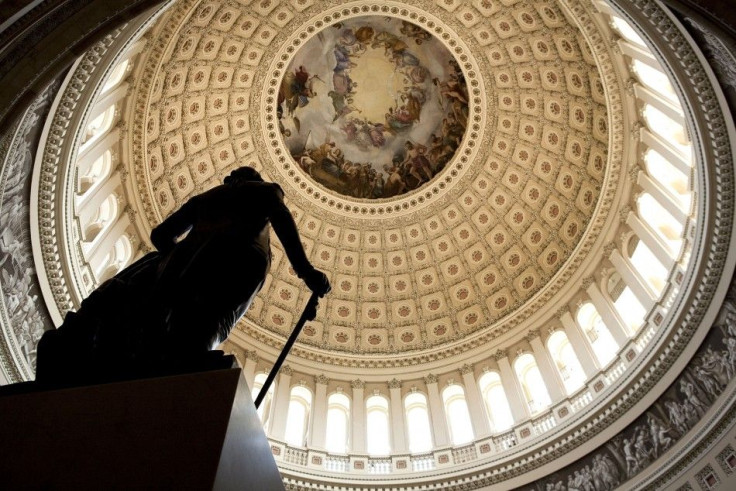Bush Tax Cuts Could Dominate 2012 Presidential Campaign After Super Committee Fails

Partisan disagreement over the fate of the Bush-era tax cuts on the nation's top earners helped to undo the Congressional deficit reduction super committee, ensuring that debate about the cuts will figure heavily into the 2012 presidential contest.
Enacted in 2001, the across-the-board tax cuts reduced rates by 4.6 percent for the wealthiest Americans and by 3 percent for everyone else. President Barack Obama vowed during his 2008 campaign to end the reductions for the most affluent bracket but in 2010 agreed to extend them in a compromise with Republicans, infuriating his base.
The tax cuts have come to epitomize the ideological gulf between Democrats and Republicans. Democrats argue that the rich must bear some of the burden for shrinking the deficit and reviving a stalled economy, while the GOP have opposed substantial sources of new revenue, including tax hikes that they say would impede growth. Members of the supercommittee invoked those arguments while predicting the commitee's demise this weekend, with Sen. Jon Kyl (R-AZ) arguing on Meet the Press that Democrats thwarted a compromise by being unable to cut even $1 in spending without saying it has to be accompanied by tax increases.
Sen. Patty Murray, D-Wash., offered her party's counterargument on CNN's State of the Union, saying that the wealthiest of Americans, those who earn more than $1 million every year, have to share, too, and that line in the sand, we haven't seen any Republicans willing to cross yet. Similarly, Sen. John Kerry (D-MA) said the most significant block to our doing something right now was the GOP's insistence, insistence, insistence on maintaining the Bush tax cuts.
Income Tax Cuts Set to Expire
The tax cuts are set to expire at the end of January of 2013, immediately after the presidential election. The positions Obama and his Republican opponent take on the issue will allow them to articulate contrasting economic visions.
Obama has backed maintaining the tax cuts for middle-income Americans but has sworn to veto an extension for the highest earners. He recently traversed the country pushing a $447 jobs bill that he proposed to pay for by raising taxes on the affluent, telegraphing a campaign strategy of calling for shared sacrifice.
Some people have been working pretty hard to keep tax breaks for the wealthiest Americans, they need to fight as hard - they need to fight even harder for middle class families, Obama said during a stump speech in Columbus, Ohio. We've got to make sure everyone pays their fair share, including the wealthiest Americans and biggest corporations.
Former Massachusetts governor Mitt Romney, widely seen as the leading contender for the Republican nomination, has taken the opposite position. His fiscal plan pledges to extend the tax cuts and denounced Obama for inflammatory rhetoric that places under attack the very investors and job creators Washington should be encouraging.
The goals that President Bush pursued in bringing rates down to their current level -- to spur economic growth, encourage savings and investment, and help struggling Americans make ends meet -- are just as important today as they were a decade ago, the plan reads, adding that the lower rates established by President Bush should be regarded as a directional marker on the road to more fundamental reform.
Obama has been careful to distinguish between letting the cuts for the highest earners expire and preserving reduced rates for Americans in lower income brackets. But Congress could put the president in a difficult position by submitting a single legislative package that includes all the tax cuts, forcing Obama into an all-or-nothing choice.
The Republican position has been that they are going to hold the middle-class tax cuts hostage to get a tax break for the folks at the very top, Chris Van Hollen (D-MD), a member of the supercommittee, told the Washington Post. But the president has made clear that he would oppose any efforts to repeat that,
© Copyright IBTimes 2024. All rights reserved.





















